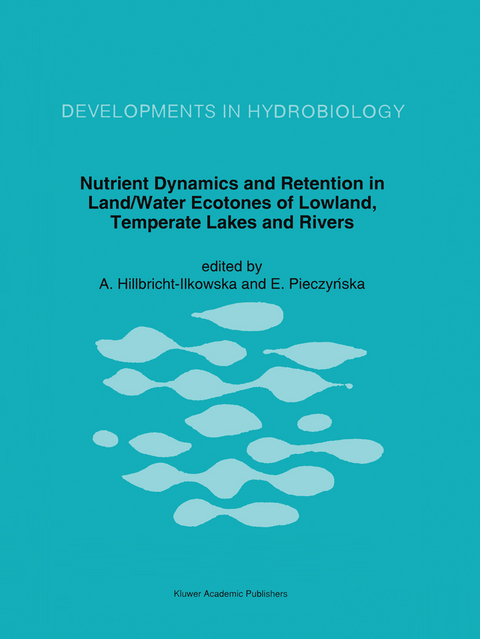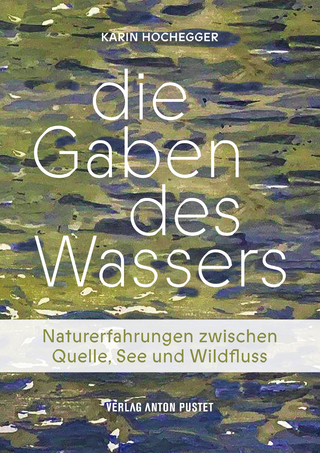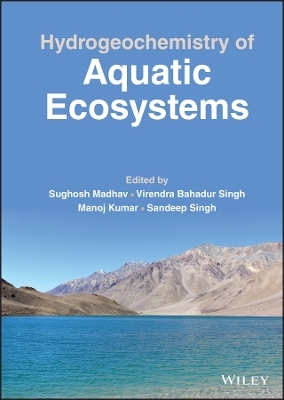
Nutrient Dynamics and Retention in Land/Water Ecotones of Lowland, Temperate Lakes and Rivers
Springer (Verlag)
978-0-7923-2124-8 (ISBN)
Wetlands, lake littoral zones.- Seasonal nitrogen dynamics in reed beds (Phragmites australis. (Cav.)Trin. ex. Steudel) in relation to productivity.- Growth and nutrient uptake by two species of Elodea in experimental conditions and their role in nutrient accumulation in a macrophyte-dominated lake.- Macrophyte-related shifts in the nitrogen and phosphorus contents of the different trophic levels in a biomanipulated shallow lake.- Functioning of land-water ecotones in relation to nutrient cycling.- Some considerations on the functioning of tropical riparian ecotones.- Nitrogen and phosphorus dynamics and retention in ecotones of Lake Titicaca, Bolivia/Peru.- Detritus and nutrient dynamics in the shore zone of lakes: a review.- Microbial decomposition of freshwater macrophytes in the littoral zones of lakes.- Frost formation in the ecotonal zone and its role for release of nutrients.- Effect of filtering activity of Dreissena polymorpha (Pall.) on the nutrient budget of the littoral of Lake Mik?oajskie.- The role of small mammals and birds in transport of matter through the shore zone of lakes.- Streams, rivers, riparian vegetation.- Transport and retention of matter in riparian ecotones.- Nitrate transformation and water movement in a wetland area.- Retention of nitrogen in small streams artificially polluted with nitrate.- Retention of nitrogen and phosphorus in a Danish lowland river system: implications for the export from the watershed.- Flow and retention of particulate organic matter in riparian fluvial habitats under different climates.- Importance of flood zones for nitrogen and phosphorus dynamics in the Danube Delta.- The Vistula river and its riparian zones.- Hydrological problems of the Vistula river valley near P?ock.- Groundwater-surface water ecotones,air-water interface.- The role of water exchange between a stream channel and its hyporheic zone in nitrogen cycling at the terrestrial-aquatic interface.- Nutrient and flow vector dynamics and the hyporheic/groundwater interface and their effects on the interstitial fauna.- Storage and dynamics of organic matter in different springs of small floodplain streams.- Transport of groundwater-borne phosphorus to Lake Bysjön, South Sweden.- Role of aquatic surface microlayer in the dynamics of nutrients and organic compounds in lakes, with implications for their ecotones.- Patch/ecotone pattern in watershed, lake-river systems.- The shore vegetation in selected lakeland areas in northeastern Poland.- Energy control of matter fluxes through land-water ecotones in an agricultural landscape.- Role of meadow strips for migration of dissolved organic compounds and heavy metals with groundwater.- The dynamics and retention of phosphorus in lentic and lotic patches of river-lake systems.- Particulate phosphorus sedimentation at the river inflow to a lake.- Patterns of spatial distribution of phosphorus regeneration by zooplankton in a river-lake transitory zone.- Drainage history and land use pattern of a Swedish river system - their importance for understanding nitrogen and phosphorus load.- Impact on lake development of changed agricultural watershed exploitation during the last three centuries.- Ecotone recovery and management.- Nutrient retention of the Kis-Balaton Water Protection System.- A multi-pond system as a protective zone for the management of lakes in China.- Management of land/inland water ecotones: needs for regional approaches to achieve sustainable ecological systems.- The application of the ecotone concept in defining nutrient management requirements for theupper Potomac River basin.- Modelling the effects of alternative nutrient control policies - the example of Slapton Ley, Devon, UK.
| Erscheint lt. Verlag | 30.4.1993 |
|---|---|
| Reihe/Serie | Developments in Hydrobiology ; 82 |
| Zusatzinfo | XIV, 361 p. |
| Verlagsort | Dordrecht |
| Sprache | englisch |
| Maße | 210 x 279 mm |
| Themenwelt | Naturwissenschaften ► Biologie ► Limnologie / Meeresbiologie |
| Naturwissenschaften ► Biologie ► Ökologie / Naturschutz | |
| ISBN-10 | 0-7923-2124-3 / 0792321243 |
| ISBN-13 | 978-0-7923-2124-8 / 9780792321248 |
| Zustand | Neuware |
| Haben Sie eine Frage zum Produkt? |
aus dem Bereich


